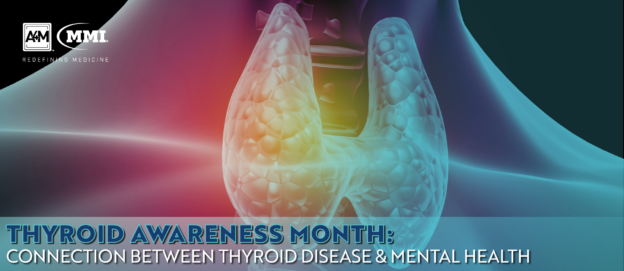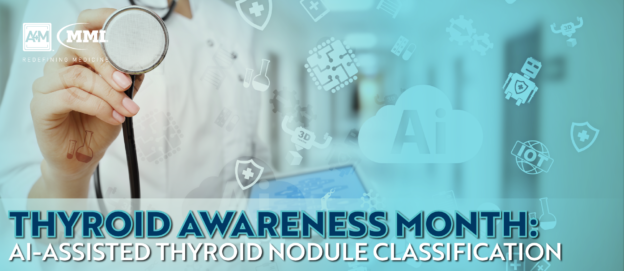The end of January marks the conclusion of Thyroid Awareness Month, which aims to spread awareness of the thyroid conditions affecting over 20 million Americans. At present, many individuals live with undetected thyroid disease – up to 60% of patients are unaware of their condition. While the underlying causes of thyroid disease remain largely unknown, preventative measures are necessary, such as the routine evaluation of the thyroid to ensure early detection and diminish the risk of severe comorbidities.
Thyroid conditions can affect people of all ages, however, they affect women significantly more often than men. Symptoms of hyperthyroidism include restlessness, inability to focus, anxiety, weight loss, and tachycardia: all of which can be alleviated with appropriate treatment methods. However, emerging research reveals a connection between thyroid disease and the development of mental health conditions – which are not easily mitigated with treatment of thyroid dysfunction.



